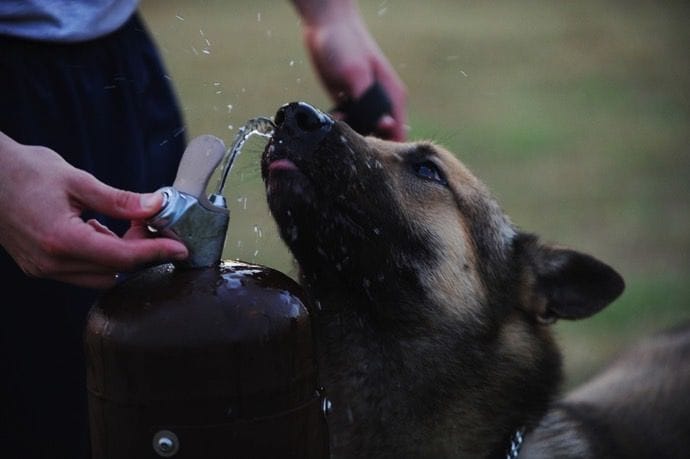EVEN THOUGH THIS IS AN ARTICLE IS THREE YEARS OLD, IT IS STILL SOMETHING THAT IS IMPORTANT TO PAY ATTENTION TOO. CHECK OUT THIS ARTICLE FROM PETMD
The “new” version of canine flu (H3N2) that began as a 2015 outbreak in the Chicago area is back in the news.
The latest surveillance data available through Cornell University shows that positive test results have been identified in dogs from 29 states. But even more interesting is the recent report from the University of Wisconsin’s School of Veterinary Medicine revealing that a group of cats housed in a Northwest Indiana shelter have tested positive for the H3N2 canine influenza virus.
According to Sandra Newbury, Clinical Assistant Professor and Director of the Shelter Medicine Program at University of Wisconsin:
“Suspicions of an outbreak in the cats were initially raised when a group of them displayed unusual signs of respiratory disease,” Newbury says. “While this first confirmed report of multiple cats testing positive for canine influenza in the U.S. shows the virus can affect cats, we hope that infections and illness in felines will continue to be quite rare.”
We already knew that feline infections were possible because South Korea cats were infected with this version of the virus when it was first identified, and one cat did test positive for the disease in the United States last year, but now the University of Wisconsin reports that it “appears the virus can replicate and spread from cat to cat.”
“Sequential sampling of these individual cats have shown repeated positives and an increase in viral loads over time,” Kathy Toohey-Kurth, virology section head at the Wisconsin Veterinary Diagnostic Laboratory says. Eight cats tested positive on consecutive tests. More had similar clinical signs but “recovered quickly before testing and tested negative.”
Dogs in the shelter did have H3N2 canine influenza when the feline infections were diagnosed, but the cats were housed in a separate part of the facility and the “cat areas were cleaned prior to cleaning the dog areas.” This just goes to show how contagious this particular flu virus can be.
READ FULL ARTICLESOURCE





